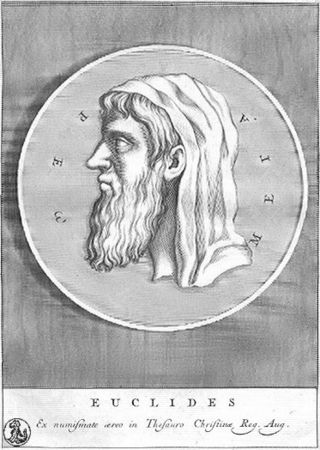
Saul was, according to the Hebrew Bible, the first monarch of the United Kingdom of Israel. His reign, traditionally placed in the late 11th century BC, supposedly marked the transition of Israel and Judah from a scattered tribal society ruled by various judges to organized statehood.

Samson was the last of the judges of the ancient Israelites mentioned in the Book of Judges and one of the last leaders who "judged" Israel before the institution of the monarchy. He is sometimes considered as an Israelite version of the popular Near Eastern folk hero also embodied by the Sumerian Gilgamesh and Enkidu, as well as the Greek Heracles. Samson was given superhuman powers by God in the form of extreme strength.
Ancient Greek philosophy arose in the 6th century BC. Philosophy was used to make sense of the world using reason. It dealt with a wide variety of subjects, including astronomy, epistemology, mathematics, political philosophy, ethics, metaphysics, ontology, logic, biology, rhetoric and aesthetics. Greek philosophy continued throughout the Hellenistic period and later evolved into Roman philosophy.
Eudaimonia, sometimes anglicized as eudaemonia or eudemonia, is a Greek word literally translating to the state or condition of 'good spirit', and which is commonly translated as 'happiness' or 'welfare'.

Euclid of Megara was a Greek Socratic philosopher who founded the Megarian school of philosophy. He was a pupil of Socrates in the late 5th century BC, and was present at his death. He held the supreme good to be one, eternal and unchangeable, and denied the existence of anything contrary to the good. Editors and translators in the Middle Ages often confused him with Euclid of Alexandria when discussing the latter's Elements.
Memorabilia is a collection of Socratic dialogues by Xenophon, a student of Socrates. The lengthiest and most famous of Xenophon's Socratic writings, the Memorabilia is essentially an apologia (defense) of Socrates, differing from both Xenophon's Apology of Socrates to the Jury and Plato's Apology mainly in that the Apologies present Socrates as defending himself before the jury, whereas the former presents Xenophon's own defense of Socrates, offering edifying examples of Socrates' conversations and activities along with occasional commentary from Xenophon. Memorabilia was particularly influential in Cynic and later Stoic philosophy.
Middle Platonism is the modern name given to a stage in the development of Platonic philosophy, lasting from about 90 BC – when Antiochus of Ascalon rejected the scepticism of the new Academy – until the development of neoplatonism under Plotinus in the 3rd century. Middle Platonism absorbed many doctrines from the rival Peripatetic and Stoic schools. The pre-eminent philosopher in this period, Plutarch, defended the freedom of the will and the immortality of the soul. He sought to show that God, in creating the world, had transformed matter, as the receptacle of evil, into the divine soul of the world, where it continued to operate as the source of all evil. God is a transcendent being, who operates through divine intermediaries, which are the gods and daemons of popular religion. Numenius of Apamea combined Platonism with neopythagoreanism and other eastern philosophies, in a move which would prefigure the development of neoplatonism.

Platonism is the philosophy of Plato and philosophical systems closely derived from it, though contemporary Platonists do not necessarily accept all doctrines of Plato. Platonism had a profound effect on Western thought. In its most basic fundamentals, Platonism affirms the existence of abstract objects, which are asserted to exist in a third realm distinct from both the sensible external world and from the internal world of consciousness, and is the opposite of nominalism. This can apply to properties, types, propositions, meanings, numbers, sets, truth values, and so on. Philosophers who affirm the existence of abstract objects are sometimes called Platonists; those who deny their existence are sometimes called nominalists. The terms "Platonism" and "nominalism" also have established senses in the history of philosophy. They denote positions that have little to do with the modern notion of an abstract object.
Attitudes toward suicide have varied through time and across cultures.
In ethics and other branches of philosophy, suicide poses difficult questions, answered differently by various philosophers. The French Algerian essayist, novelist, and playwright Albert Camus (1913–1960) began his philosophical essay The Myth of Sisyphus with the famous line "There is but one truly serious philosophical problem and that is suicide.".

Suicide: A Study in Sociology is an 1897 book written by French sociologist Émile Durkheim. It was the second methodological study of a social fact in the context of society. It is ostensibly a case study of suicide, a publication unique for its time that provided an example of what the sociological monograph should look like.
Theages is a dialogue attributed to Plato, featuring Demodocus, Socrates and Theages. There is debate over its authenticity; W. R. M. Lamb draws this conclusion from his opinion that the work is inferior and un-Socratic, but acknowledges that it was universally regarded as authentic in antiquity.

Jewish mythology is the body of myths associated with Judaism. Elements of Jewish mythology have had a profound influence on Christian mythology and on Islamic mythology, as well as on Abrahamic culture in general. Christian mythology directly inherited many of the narratives from the Jewish people, sharing in common the narratives from the Old Testament. Islamic mythology also shares many of the same stories; for instance, a creation-account spaced out over six periods, the legend of Abraham, the stories of Moses and the Israelites, and many more.
Neoplatonism was a major influence on Christian theology throughout Late Antiquity and the Middle Ages in the East, and sometimes in the West as well. In the East, major Greek Fathers like Basil, Gregory of Nyssa and Gregory of Nazianzus were influenced by Platonism and Neoplatonism, but also Stoicism often leading towards asceticism and harsh treatment of the body, for example stylite asceticism. In the West, St. Augustine of Hippo was influenced by the early Neoplatonists Plotinus and Porphyry. Later on, in the East, the works of the Christian writer Pseudo-Dionysius the Areopagite, who was influenced by later Neoplatonists such as Proclus and Damascius, became a critical work on which Greek church fathers based their theology, like Maximus believing it was an original work of Dionysius the Areopagite.
A sage, in classical philosophy, is someone who has attained wisdom. The term has also been used interchangeably with a 'good person', and a 'virtuous person'. Among the earliest accounts of the sage begin with Empedocles' Sphairos. Horace describes the Sphairos as "Completely within itself, well-rounded and spherical, so that nothing extraneous can adhere to it, because of its smooth and polished surface." Alternatively, the sage is one who lives "according to an ideal which transcends the everyday."

Socrates was a Greek philosopher from Athens who is credited as the founder of Western philosophy and among the first moral philosophers of the ethical tradition of thought. An enigmatic figure, Socrates authored no texts and is known mainly through the posthumous accounts of classical writers, particularly his students Plato and Xenophon. These accounts are written as dialogues, in which Socrates and his interlocutors examine a subject in the style of question and answer; they gave rise to the Socratic dialogue literary genre. Contradictory accounts of Socrates make a reconstruction of his philosophy nearly impossible, a situation known as the Socratic problem. Socrates was a polarizing figure in Athenian society. In 399 BC, he was accused of impiety and corrupting the youth. After a trial that lasted a day, he was sentenced to death. He spent his last day in prison, refusing offers to help him escape.
Altruistic suicide is the sacrifice of one's life in order to save or benefit others, for the good of the group, or to preserve the traditions and honor of a society. It is always intentional. Benevolent suicide refers to the self-sacrifice of one's own life for the sake of the greater good. Such a sacrifice may be performed for the sake of executing a particular action, or for the sake of keeping a natural balance in the society.
Psychagogy is a psycho-therapeutic method of influencing behavior by suggesting desirable life goals. In a more spiritual context, it can mean guidance of the soul. It is considered to be one of many antecedents and components of modern psychology.
John Michael Rist is a British scholar of ancient philosophy, classics, and early Christian philosophy and theology, known mainly for his contributions to the history of metaphysics and ethics. He is the author of monographs on Plato, Aristotle, the Stoics, Epicurus, Plotinus, the dating of the Gospels, and Augustine. Rist is Professor of Classics Emeritus at the University of Toronto and part-time Visiting Professor at the Institutum Patristicum Augustinianum in Rome, held the Father Kurt Pritzl, O.P., Chair in Philosophy at the Catholic University of America in Washington, D.C., and is a life member of Clare Hall, Cambridge University. During his lengthy academic career he has been Regius Professor of Classics at the University of Aberdeen (1980-1983), Professor of Classics and Philosophy at the University of Toronto (1983–1996), and the Lady Davis Visiting Professor in Philosophy at the Hebrew University of Jerusalem (1995).

Samson was an opera by the French composer Jean-Philippe Rameau with a libretto by Voltaire. The work was never staged due to censorship, although Voltaire later printed his text. Rameau intended the opera on the theme of Samson and Delilah as the successor to his debut Hippolyte et Aricie, which premiered in October 1733. Like Hippolyte, Samson was a tragédie en musique in five acts and a prologue. Voltaire had become a great admirer of Rameau's music after seeing Hippolyte and suggested a collaboration with the composer in November 1733. The opera was complete by late summer 1734 and went into rehearsal. However, a work on a religious subject with a libretto by such a notorious critic of the Church was bound to run into controversy and Samson was banned. An attempt to revive the project in a new version in 1736 also failed. The score is lost, although Rameau recycled some of the music from Samson in his later operas.









